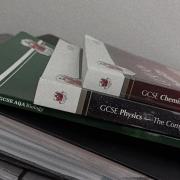
We are currently going through a very turbulent and tempestuous time, especially for those of you in Year 11. Nevertheless, Year 11 students will still have to end up going to Sixth Form/College, so whilst we are quarantining, now is the best time to get a headstart and begin preparing for your Sixth Form/College journey. Below are subject-specific guides to help you figure out what to do to prepare. These are not intensive and are only small things that will really help you later on.
English Literature
Engish Literature is possibly one of the easiest subjects to prepare for out of most of the subjects. Read, read, read! Then read some more! You can begin by looking at the Sixth Form/College that you think you may go to and look at the books, plays and poems they will be studying in Year 12. Whilst you don’t have to annotate these texts in full, simply reading the text and making note of why you like or don’t like it will help you very much in the future. This is because reading in Year 12 becomes a lot more hectic than Year 11, not only do you have your school texts, but you also have to begin with wider reading texts. This can get overwhelming, so starting now will not only help you stay focused on that English Literature mindset but also give future you a break! It is also important to mention, please check the school’s texts, if you don’t particularly enjoy or like the themes of the texts they study, it may make it harder for you in Year 12. So pick your schools wisely!
Here are some places where you can read books:
For a Price: https://www.audible.co.uk/
For Free: https://www.gutenberg.org/
History
Now, I may be biased, but History is possibly one of the most enjoyable subjects to prepare for. Like English Literature, wider reading is also a way to prepare. Based on the content that the school you want to go to is teaching, you can find historical books to help boost your knowledge. For example, I’m currently doing Tsarist and Communist Russia as part of my course, so I’ve been reading books such as ‘Revolutionary Russia’ by Orlando Figes. By doing so, you’ve given yourself the background of the content you will be studying in more detail, and developing your critical thinking skills for debate. Additionally, watching documentaries can be a fun and chill way of getting knowledge for a specific course. The BBC is a wonderful resource to watch these documentaries with a wide range of topics. Happy watching and reading!
To watch: https://www.bbc.co.uk/iplayer/categories/history/featured
Psychology
For Psychology, wider reading and watching is something that students all recommend to increase subject knowledge. Some advice is that you do not need to go to heavy with this, but knowing some key figures and theorists can help you in the long run.
Some wider reading for Psychology
Introducing Psychology: A Graphic Guide to Your Mind and Behaviour by Nigel Benson
Freud for Beginners by Richard Appignanesi and Oscar Zarate
Psychology: A Very Short Introduction by Gillian Butler and Freda McManus
Sociology
Television shows can help you widen your knowledge and have some value to the course. Whilst they may not be as subject-specific as a History documentary, they are useful for making you think and develop your own opinions and arguments.
TV Shows which have some sociological value:
Panorama
Cutting Edge
Art
Since we are on lockdown, it may not be as easy to prepare for Art as it once was. Many people’s advice was to go see galleries and exhibitions, this can still be done. There are many different virtual galleries online which you can use. These may be useful for expanding your knowledge on art and picking up on some new artists you may have never heard of before. Students have said to make sure you understand the heavy workload that comes with Art and look at ex-pupils work online to understand the level and amount of work you need to do.
Some Virtual Galleries:
https://www.nationalgallery.org.uk/visiting/virtual-tours
https://www.eden-gallery.com/virtual-tour/
Business
If you are planning to study Business, now is the perfect time to get stuck in! Business is constantly evolving and reading current affairs is imperative for the clear and developed understanding of the Business world and the impact of politics and economics within that. Tips would be to keep up to date with news surrounding businesses, this is especially useful because we are in the middle of the Covid-19 pandemic. By doing this, you are expanding your own bank of real-life scenarios which you can adapt to theory in Year 12. This is something you are expected to do in Year 12 but will be of real help now. In addition, if you were not studying Business GCSE, then it may be helpful to do some self-study on the GCSE course online to make sure that you understand key terminology as your classes may have Business GCSE students and some teachers may forget to slow down.
To Read:https://www.bbc.co.uk/news/business
To Study: https://app.senecalearning.com/courses / http://www.tutor2u.net/
Maths
Maths is mostly GCSE content at the beginning of the course, so making sure to practice key things such as basic algebra and quadratics is important. A top tip is to go over all the maths content you found difficult at GCSE and make sure that everything is consolidated. With Maths, the only way is to practice to make sure you don’t lose those key skills needed. If you would like to get a headstart, the website ‘Physics and Maths Tutor’ is recommended by A-Level students and could be a way for you to gauge if Maths is for you.
To Study: https://www.physicsandmathstutor.com/
Biology, Chemistry and Physics
For Chemistry, some advice from Year 12 students was to make sure you have all of your GCSE Maths knowledge consolidated. Chemistry students have stressed this point, make sure you know there is maths, this is a key point and it’s important you keep practising to make sure your key skills are consolidated. There are some Biology, Chemistry and Physics textbooks online which can help you with the transition, but the current A-Level students only suggest you do this if you really struggled with the GCSE course and need some extra revision and help. The key thing to do again is to keep going over the GCSE course to make sure you don’t lose any knowledge.
Textbook Links:
https://www.amazon.co.uk/Head-Start-level-Chemistry-Level/dp/1782942807
https://www.amazon.co.uk/Head-Start-level-Biology-Level/dp/1782942793
https://www.amazon.co.uk/Head-Start-level-Physics-Level/dp/1782942815
I hope this guide has been useful, and a huge thank you to all the students involved.
By Jaynelle Osei



























